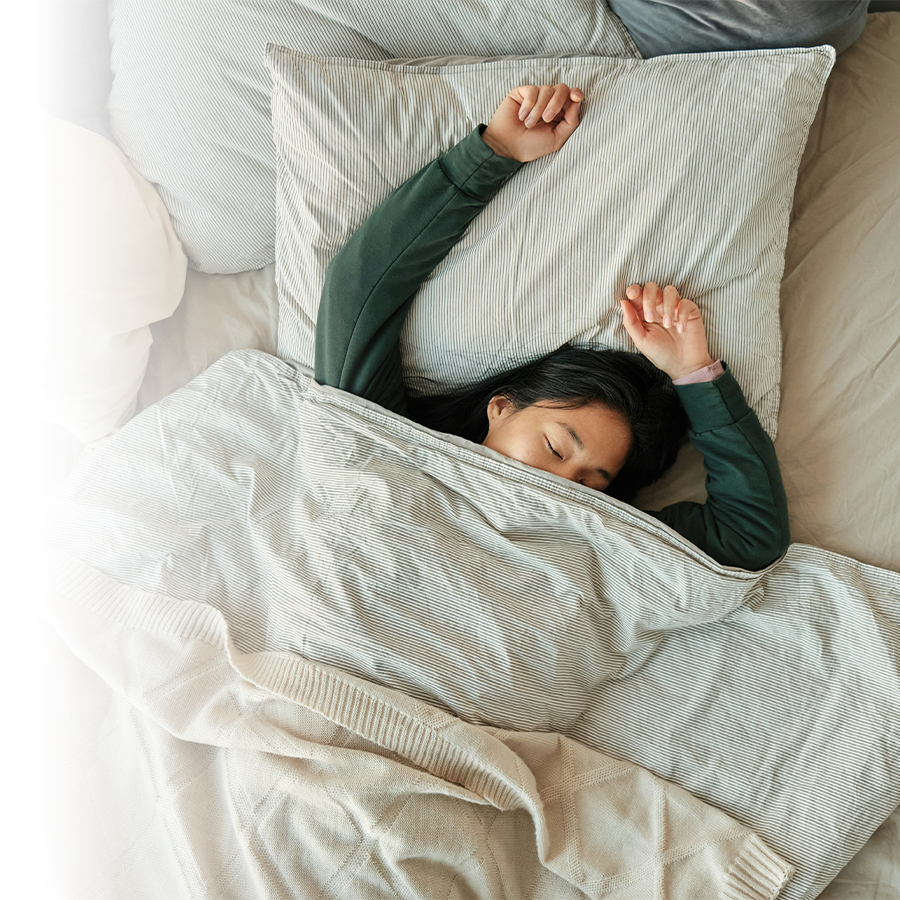Do you feel a loss of energy and vitality in winter? If so, you may suffer from seasonal depression or the winter blues.
Winter—a challenge for some
For people living in Nordic regions, it can be difficult to adjust to typical climate changes of winter. For instance, people who are always cold are often reluctant to go outside, limiting their comings and goings. Moreover, certain health problems can be worsened by the cold, such as asthma, skin or eye problems, and cardiovascular or circulatory diseases.
Seasonal depression, also called "seasonal affective disorder" or "winter blues" is among the prevalent health problems in winter.
Winter blues—a reality
Seasonal depression is more common than one might think. In fact, it is estimated that 2 to 10% of Canadians are affected by it. Women are more affected by it than men, and an increase has been observed in young adults. Symptoms are varied and include fatigue, excessive need of sleep, increased appetite, changes in memory and concentration.
It is often difficult to distinguish between seasonal depression and major depression due to the similarity of symptoms. It is especially the seasonal nature of symptoms that enables one to distinguish between them. It is a cyclical disorder marked by a succession of depressive phases during fall and winter, followed by stabilization of symptoms in spring and summer.
Anyone can be affected to various degrees by the effects of a lack of sunlight resulting from reduced daylight hours. Typical symptoms include lack of enthusiasm or energy, increased fatigue, difficulty concentrating, mood swings, and changes in appetite. Warning, as a person can present these symptoms without suffering from full-blown seasonal depression. Here, we speak of "winter blues". It is estimated that 18% of Canadians are affected by the lack of sunlight typical of winter.
If you think you may be affected by seasonal depression, speak to your doctor to confirm a diagnosis.
Solutions
Here are a few tips on how to maintain your cheerfulness and usual energy level when the days get shorter.
- Eat healthy. It is difficult to be in peak form if you don't give your body the nutrients that give it the maximum energy and strength.
- Stay active. Physical activity produces endorphins and neurotransmitters associated to well-being and pleasure. Moreover, outdoor activities have the benefit of oxygenating the body and exposing you to sunrays.
- Go outside regularly and dress warmly. Indoor lighting does not reproduce the sun's light spectrum very well and is much less beneficial than natural light. Take advantage of sunny days to get some fresh air!
- Enjoy the sun's rays—from inside your house! Let the sun's rays fill up your home as often as possible (open the curtains wide) and sit by a window to do your daily activities.
- Purchase a light therapy lamp. It is an option of choice for individuals dealing with winter blues or seasonal depression. Read the following texts: The benefits of light therapy and How to choose the right light therapy lamp.
- Speak to a healthcare professional if you believe to be affected by seasonal depression or by a lack of sunlight. He/she can present the various solutions open to you.
- If necessary, consider the use of a drug treatment. Your pharmacist can provide information about the advantages and risks of the medication chosen, how it should be used, and the precautions that should be taken.
Pharmacists are health and medication experts. Don't hesitate to speak to them when you have health issues, whatever the season!

